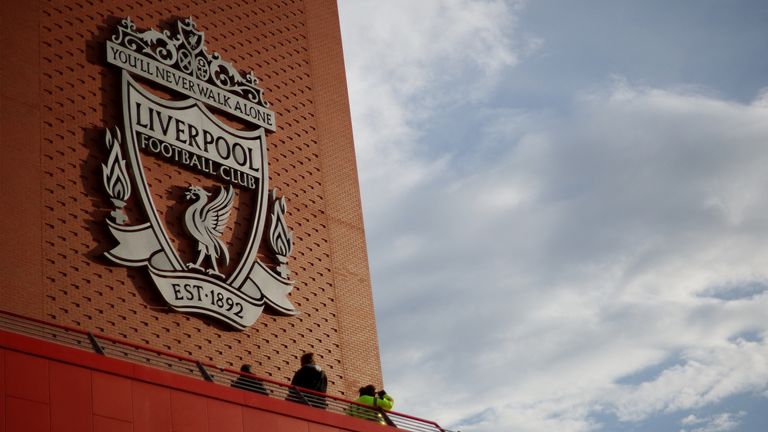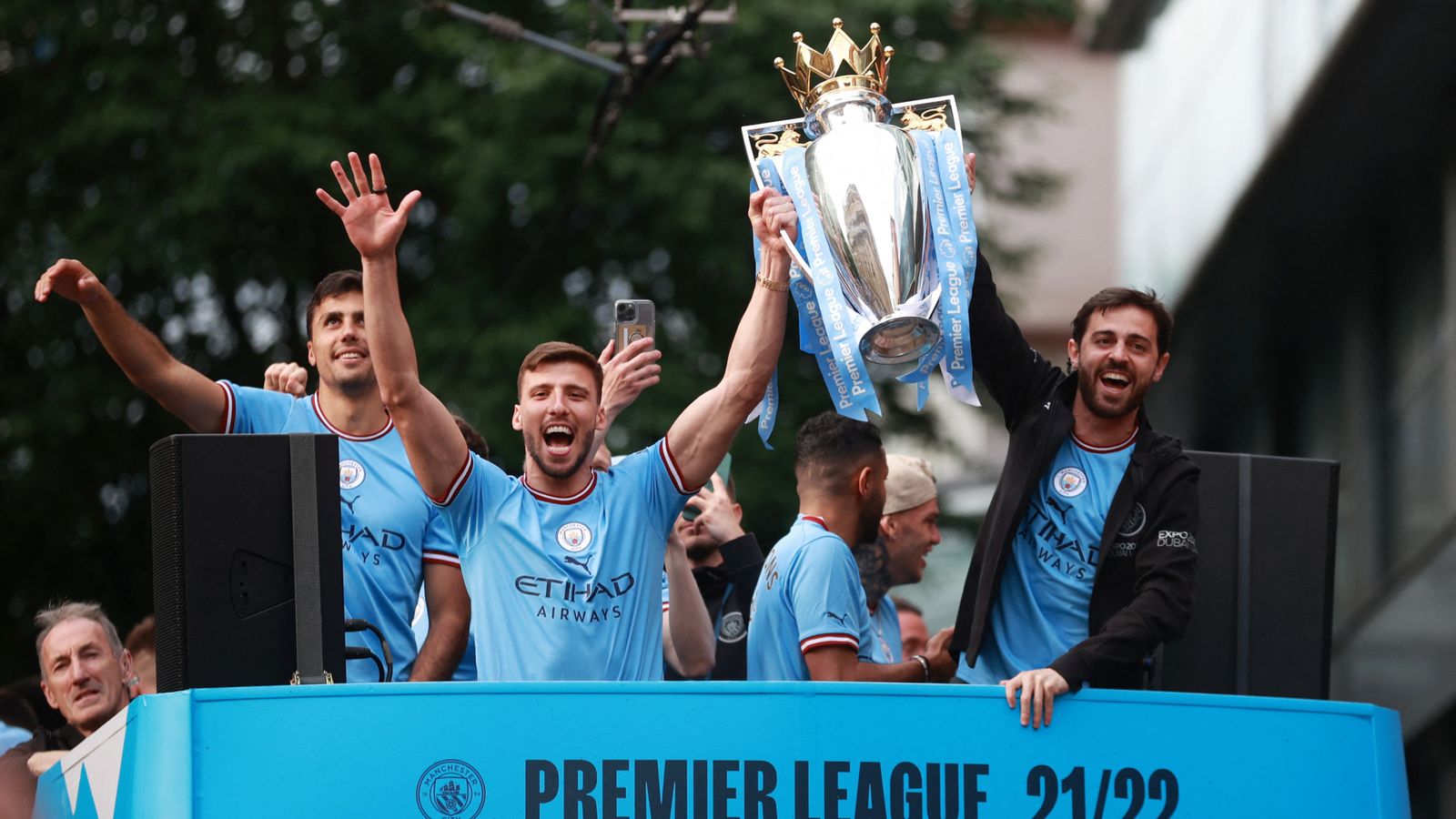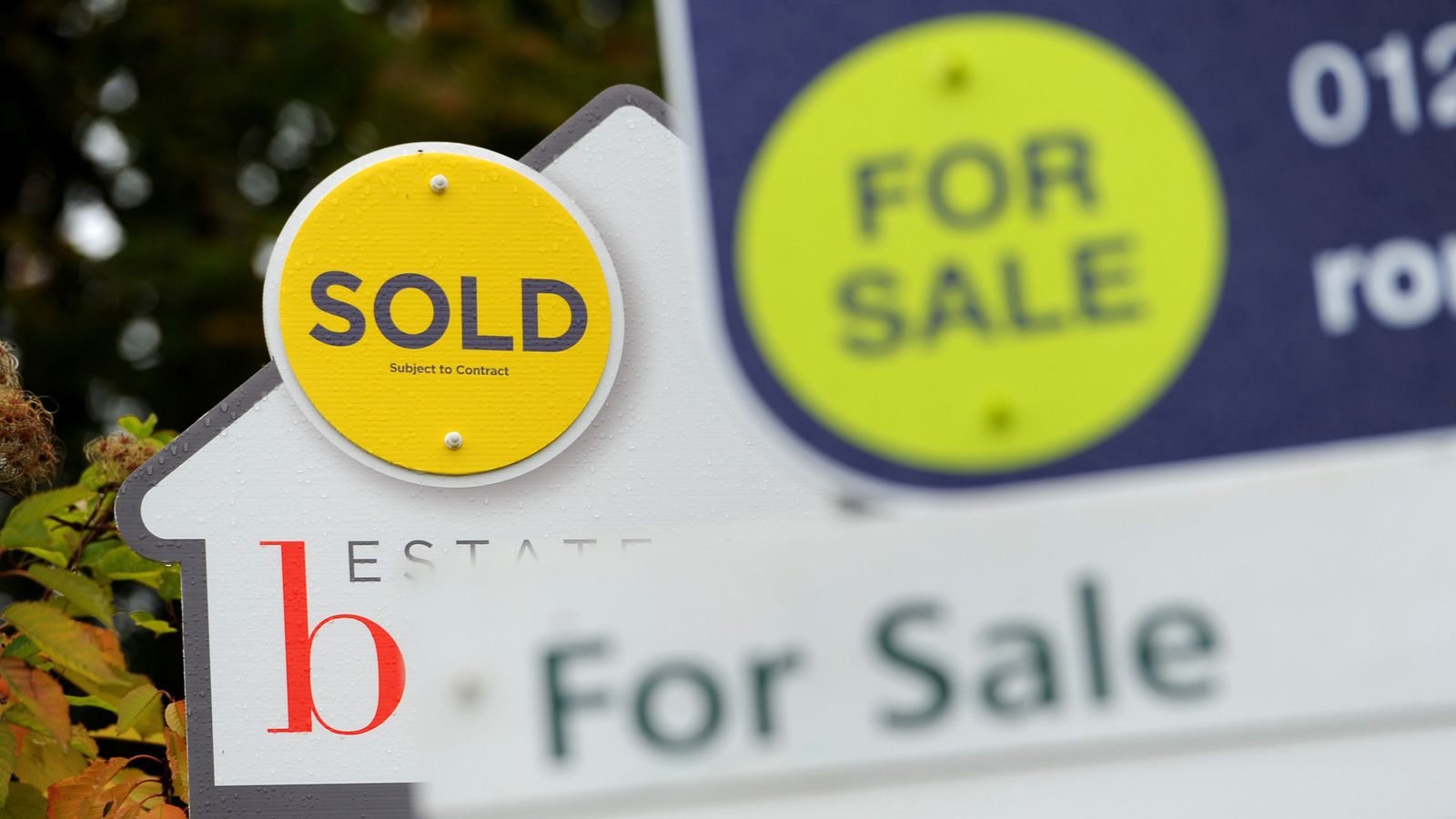
Manchester City has topped a closely watched global revenue ranking for the second year running, with the wider Premier League taking “the lion’s share” of the top spots globally for the first time.
The 26th edition of the Deloitte Football Money League, which determines the top 20 clubs for revenue during the 2021/22 season, showed Premier League sides taking 11 of the positions – up from 10 the year before.
The top 20 raked in a combined £7.8bn over the period, according to the research – a 13% rise on the previous season as matchday spending rebounded following the return of fans to stadia as COVID-19 restrictions were lifted.
The table was led by Manchester City – the Premier League champions at the end of the 2021/22 season – with £619.1m in total revenue followed by Real Madrid on £604.5m.
The top three was completed by Liverpool, the biggest upwards mover on £594.3m – with Manchester United achieving £583.2m and Paris Saint-Germain £554m.
The other Premier League clubs to feature were Chelsea (£481.3m), Tottenham Hotspur (£442.8m), Arsenal (£367.1m), West Ham (£255.1m), Leicester City (£213.6m), Leeds (£189.2m), Everton (£181m) and Newcastle United (£179.8m).
The report was published against a backdrop of rising pressure on the Premier League to agree a new funding settlement with the lower-tier English Football League.
The EFL is pressing for a new regulator – as recommended by the Crouch review in 2021 – to ensure its members get fairer funding arrangements for the good of the wider game.
Tim Bridge, lead partner in Deloitte’s Sports Business Group, said: “For the first time, Premier League clubs fill the lion’s share of positions in Deloitte’s Football Money League.
“The question now is whether other leagues can close the gap, likely by driving the value of future international media rights, or if the Premier League will be virtually untouchable, in revenue terms.
“The Premier League was the only one of the ‘big five’ European leagues to experience an increase in its media rights value during its most recent rights sale process. It continues to appeal to millions of global followers and its member clubs have a greater revenue advantage over international rivals.
“Commercial partner, fan and investor interest in the Premier League appears higher than ever before.
“While this suggests optimism for further growth, continued calls for greater distribution of the financial wealth of English clubs across the football system and the impact of a cost of living crisis makes it all the more important for the game’s stakeholders to keep a clear focus on their responsibility as stewards of leading clubs.”
The report was released against a backdrop of uncertainty over the future ownership of two of the top five clubs by revenue.
The American owners of both Liverpool and Manchester United have indicated they are open to offers.
John Henry-led Fenway Sports Group and the Glazer family respectively are likely to have had their interest in a sale lubricated by the strong price achieved for Chelsea last year when Russian owner Roman Abramovich was forced to sell amid his country’s invasion of Ukraine.
The Deloitte report also highlighted why there could be interest in Premier League club ownership more generally, with women’s teams continuing to contribute more in terms of revenue year on year as its popularity increases.
There were 16 English clubs in the top 30 of the Money League.
Sports Business Group director Sam Boor added: “The Premier League’s financial superiority is unlikely to be challenged in the coming seasons.
“This is particularly apparent at a time when these clubs continue to attract international investment which often, in the best examples, encourages a focus on profitability, as well as on-pitch success.
“It’s now likely a case of not if, but when, all 20 Premier League clubs will appear in the Money League top 30.”








